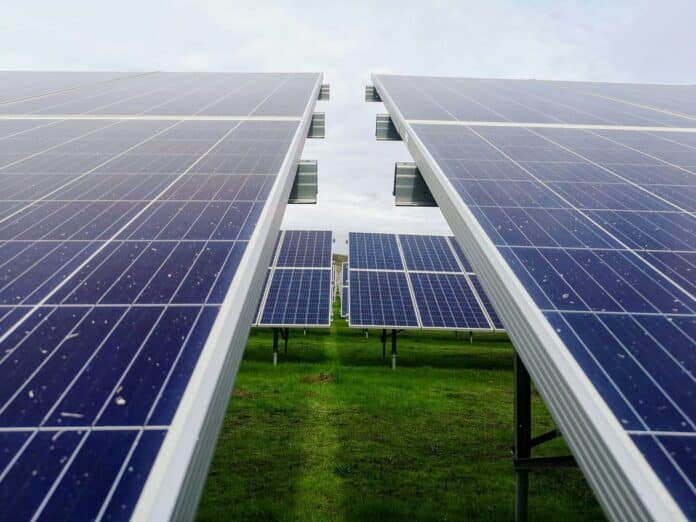Introduction Solar Panel Efficiency
Solar panel efficiency is an important factor to consider when determining the performance and effectiveness of a solar panel system. It refers to the ability of a solar panel to convert sunlight into usable electricity. In this blog post, we will discuss the process of calculating solar panel efficiency and explore some factors that can affect it.
Understanding Solar Panel Efficiency
Solar panel efficiency is typically expressed as a percentage and represents the amount of sunlight that a solar panel can convert into electricity. The higher the efficiency, the more electricity the panel can generate from a given amount of sunlight.
To calculate the efficiency of a solar panel, you need to know two key values:
1. Rated Power Output: This is the maximum power output of the solar panel under standard test conditions (STC). It is usually measured in watts (W) and can be found in the panel’s specifications.
2. Incident Solar Power: This is the amount of solar power that falls on the surface of the solar panel. It can be measured in watts per square meter (W/m²) and can vary depending on factors such as location, time of day, and weather conditions.
Calculating Solar Panel Efficiency
The formula for calculating solar panel efficiency is as follows:
Efficiency = (Rated Power Output / Incident Solar Power) x 100
Let’s say you have a solar panel with a rated power output of 300 watts and the incident solar power falling on the panel is 1000 watts per square meter. Using the formula, the efficiency of the solar panel would be:
Efficiency = (300 / 1000) x 100 = 30%
So, in this example, the solar panel has an efficiency of 30%.
Factors Affecting Solar Panel Efficiency
Several factors can affect the efficiency of a solar panel. It’s important to consider these factors when calculating or comparing the efficiency of different panels.
1. Temperature: Solar panels can become less efficient as their temperature increases. High temperatures can cause a decrease in power output, leading to a lower overall efficiency.
2. Shading: Shading on a solar panel can significantly reduce its efficiency. Even a small amount of shading can have a noticeable impact on the panel’s performance. It is important to ensure that the solar panel is installed in an area with minimal shading.
3. Dust and Dirt: Accumulation of dust, dirt, or other debris on the surface of a solar panel can reduce its efficiency. Regular cleaning and maintenance are necessary to maintain optimal performance.
4. Angle and Orientation: The angle and orientation at which a solar panel is installed can affect its efficiency. Panels that are tilted towards the sun and facing the correct direction can capture more sunlight and generate more electricity.
5. Quality of Materials: The quality of the materials used in the construction of a solar panel can also impact its efficiency. High-quality panels with better materials and manufacturing processes tend to have higher efficiencies.
Final thoughts
Calculating solar panel efficiency is a straightforward process that involves determining the rated power output and incident solar power. By understanding the factors that can affect efficiency, you can make informed decisions when selecting and installing solar panels. Remember to consider temperature, shading, cleanliness, angle, orientation, and the quality of materials when evaluating the efficiency of solar panels.
